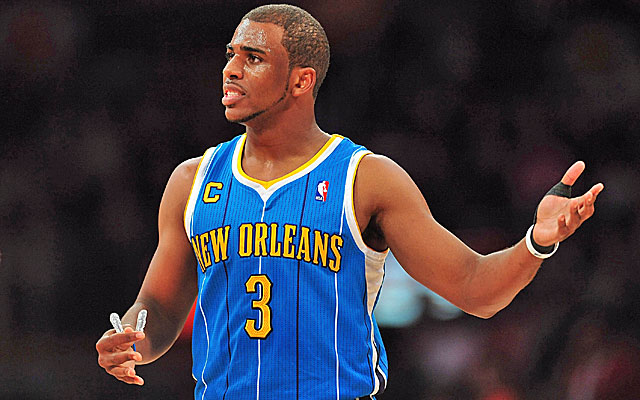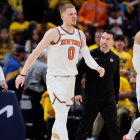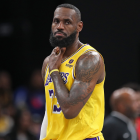
NEW ORLEANS -- One of the most vexing aspects of Chris Paul's departure from New Orleans in 2011 is a single, fascinating question: Would he have really left as a free agent if the franchise hadn't traded him?
Back in the Big Easy for All-Star weekend on Friday, Paul said it's a question he can't answer.
"I don't know; I've never even thought about that," Paul said. "What I do know is, for the six years that I played here, I loved it -- I genuinely loved it. I think what you can find sometimes is, you could ask people a question on camera and afterwards they'll be like, 'I really didn't mean that.' But I think the people here know I truly loved it here. I loved everything about playing here -- the fans, the people -- it was a great six years."
In the analysis of how things might have been different if the then-Hornets had been allowed to trade Paul to the Lakers -- a move that was vetoed by commissioner David Stern in December 2011 -- something has gotten lost in the two-plus seasons since. What if the Hornets, owned by the league at the time, had insisted on standing by the premise of the 2011 labor agreement by informing Paul after the lockout that they weren't trading him?
Paul had two years left on his contract at the time and would have become a free agent in July 2013. If the Hornets (who later became the Pelicans) had refused to trade him, Paul would've faced a dilemma that no free-agent superstar wants: If he really wanted to leave New Orleans, he would have had to accept a shorter contract and less money than he could have received by staying. Had he still been with New Orleans on July 1, 2013, the Pelicans would have been the only franchise that could have offered him a five-year, $107 million deal.
Paul, of course, got such a deal from the Clippers, joining a long list of superstar free agents who have gotten to choose their team (often in a major or otherwise glamorous market) and max out their earnings at the same time -- regardless of which version of the CBA was in effect. Going back to LeBron James' departure from Cleveland to Miami in 2010, the only top-tier free agent to willingly take less to go from one franchise to another was Dwight Howard, who left the Lakers for a four-year, $88 million deal with the Rockets last summer.
James and Chris Bosh got to Miami with six-year max deals via sign-and-trades (a method of acquisition no longer available to tax-paying teams). Paul's close friend Carmelo Anthony got a three-year, $65 million extension in an extend-and-trade from Denver to the Knicks in February 2011 (another provision that was banished from the 2011 CBA).
Faced with a similar dilemma, what would Paul have done? Would he have taken less security and significantly less money to leave a city that he has professed to loving so much?
"I can't answer that because I don't know," Paul said. "It's crazy; what was that, three years ago? It's almost scary to think how much smarter I am now than I was then. That's one of those that I don't know."
And we'll never know. But that doesn't make it any less interesting to wonder.





















